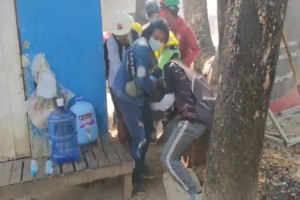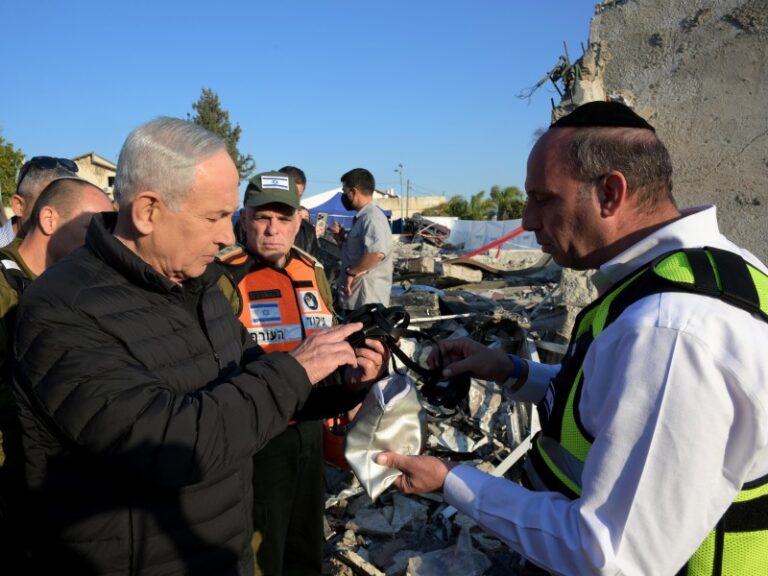
OHCHR confirms at least 67 people — including women and children — killed by military junta as of March 8
Yangon/New York: Even as the United Nations Security Council reiterated its deep concern about developments in Myanmar following the state of emergency imposed by the military on February 1, 2021 and arbitrary detention of members of the Government, including State Counsellor Aung San Suu Kyi and President Win Myint, latest reports from Myanmar say the Military junta was again using live ammunition in North Dagon in which one is already reported dead, and many severely injured. This is the first bloodshed today in North Dagon.
Eyewitnesses tweeted that the security forces shot one boy into head, killing him on the spot. Three pro-democracy protestors were shot in thighs, trunk, arm. They are shooting randomly and cars are also damaged.
Happened around 10:30am between 90th and 30th street, Chang Aye Thar Zan, Mandalay.
Junta's soldiers hit the unarmed protester till to die and they also took the dead body.#WhatsHappeningInMyanmar #Mar11Coup @freya_cole @cape_diamond @UNinMyanmar @UN @UNDP_Myanmar @poppymcp pic.twitter.com/3TLJYnv9Fz— Rosella Hanna (@RosellaHanna) March 11, 2021
At the UNSC, in a presidential statement issued on March 10 by the representative of the United States, Council president for March, the 15-member organ strongly condemned the violence against peaceful protesters. It expressed deep concern over restrictions against medical personnel, civil society, labour union members, journalists and media workers, and called for the immediate release of all those detained arbitrarily.
At the same time, Council members, through the statement, expressed continued support for the democratic transition in Myanmar, stressing the need to uphold democratic institutions and processes, refrain from violence, and fully respect human rights and the rule of law. They reiterated strong support for the Association of Southeast Asian Nations (ASEAN), welcoming in particular, statements made by its Chair on March 2 and February 1, which recalled the ASEAN Charter principles of democracy, adherence to the rule of law and good governance, among others.
Calling on all parties to exercise utmost restraint and seek a peaceful solution through constructive dialogue and practical reconciliation “in the interests of the people and their livelihood”, the Council further highlighted that the current situation has the potential to exacerbate existing challenges in Rakhine state and other regions. “It is vital that the rights of minorities are fully protected,” members stated.
Meanwhile, the UN Secretary-General’s Special Envoy, Christine Schraner Burgener, is still not able to visit the country even as her office informed that she remains in close contact with key actors in Myanmar, including the military, on a possible visit to the country. She has been engaging regularly with civilian political representatives, leaders of the popular movement and civil society actors inside Myanmar. The Special Envoy also continues to engage regional stakeholders, including senior officials in China, as well as leaders of the Association of Southeast Asian Nations (ASEAN) countries, and other regional organizations.
“There’s no indication as to when she’ll be able to travel to the region, let alone inside the country. I think the reports that we’re seeing are extremely, extremely disturbing. These are heavy‑handed tactics that violates a number of human rights, and it just gets added to the long list of human rights violations that we have seen since the coup,” Stéphane Dujarric, Spokesman for the Secretary-General, told reporters here last night (IST)..
While the UN team on the ground remains deeply concerned over the ongoing loss of life since the military took over the Myanmar Government on February 1, the Office of the United Nations High Commissioner for Human Rights (OHCHR) has informed that as of 8 March, at least 67 people — including women and children — have been confirmed to have been killed. Hundreds more people have been injured.
“The UN team again calls on the military to halt the use of force against peaceful protestors. The use of lethal force against non-violent demonstrators is never justifiable under international human rights norms. Our colleagues there say they are also profoundly concerned over further efforts to undermine freedom of expression in Myanmar, following increased pressure on independent media outlets,”Dujarric stated.
To a question on whether reports of defections and derelictions of duty within the military in Myanmar showed an increasingly chaotic behaviour, not just against civilians but in terms of the command‑and‑control structure of the military, Dujarric said there was a continued clampdown on basic human freedoms by the military, which needs to stop. “Whether or not there is the question of command and control, the one of defection is not really one that I can analyse from here. We’ve seen anecdotal evidence of some defection, but what we’re really seeing and what we need to focus on is the continuing violent crackdown,” he said.
– global bihari bureau





